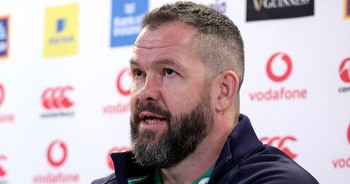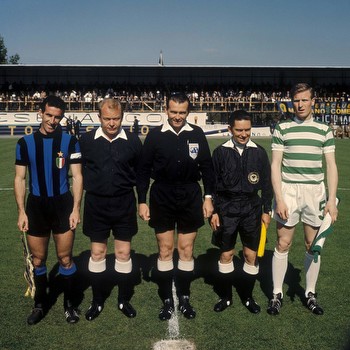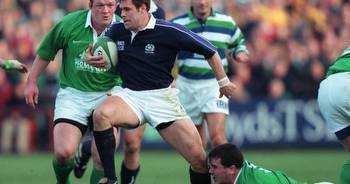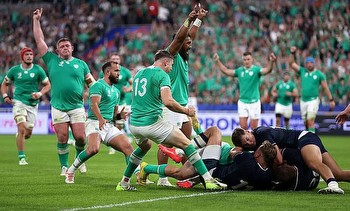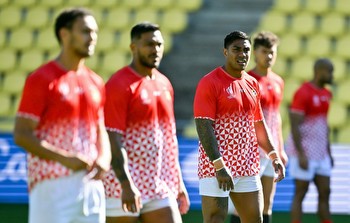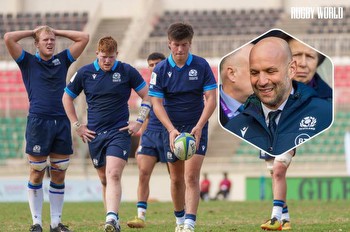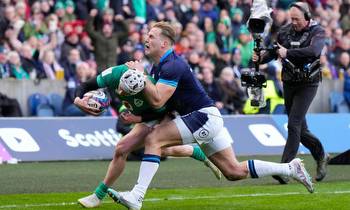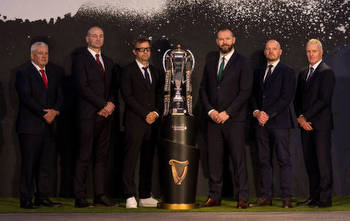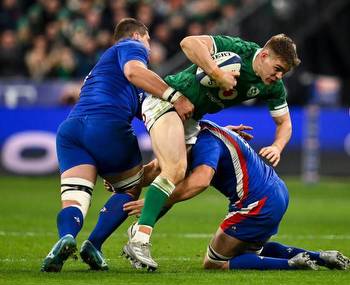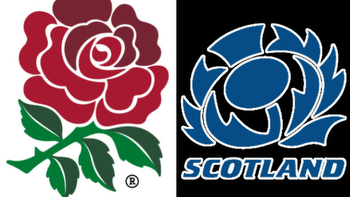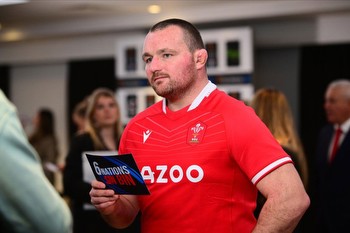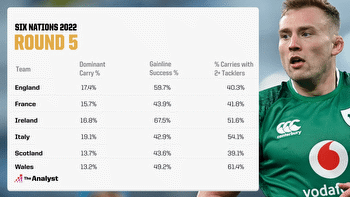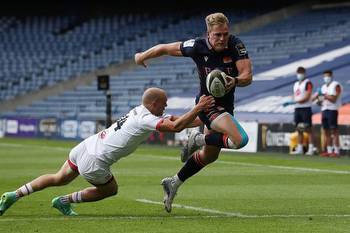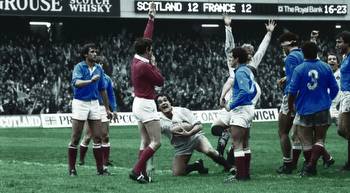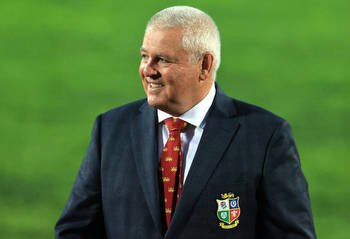Brett Igoe on the Rugby World Cup: Scotland, statistics and the "underdog effect"
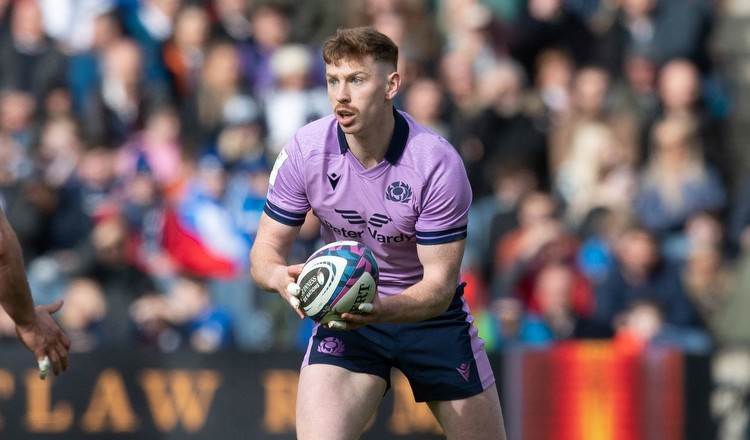
The picturesque town of Stirling which lies 26 miles northeast of Glasgow and 37 miles northwest of Edinburgh, is known as the “Gateway to the Highlands”, where the lowlands meet the rugged highlands of Scotland.
Here, in 1297 amidst the fortified landscape, the English, the dominant force of the era, anticipated an unchallenged triumph against a beleaguered Scottish force.
Outnumbered with a ratio of almost five to one, the 2,000 Scottish infantry faced the daunting might of 10,000 English soldiers, armed with fearsome longbows. But the Scots, against all odds, held a beacon of hope in the form of their unyielding spirit.
As history unfolded on the grounds of Stirling Bridge now the home of Stirling rugby club, two English nobles rode out, confronting the Scottish infantry and their legendary leader William Wallace. Despite offers of land and wealth, Wallace’s resolve stood unbroken.
His words echoed, “We are not here to make peace but to do battle, to defend ourselves and liberate our kingdom.” This indomitable spirit and strategic skill led to a decisive Scottish victory, showcasing the triumph of the underdog, a narrative that has since captured our global imagination.
In the modern age, stories of underdogs defying overwhelming odds have a profound impact, consistently enchanting and uplifting audiences. Films like “Braveheart” and “Rocky,” coupled with real-world sporting wonders such as Leicester City’s unexpected Premier League victory in 2016, stand as powerful testaments.
These tales vividly portray the gruelling yet victorious odysseys of individuals or teams who, against all expectations, rise to meet daunting challenges. They bolster the timeless conviction that with unwavering spirit and sheer determination, even the mightiest barriers can be breached.
In sports psychology, this allure towards the weaker opponent is termed the “underdog effect,” and it’s a topic of keen interest among researchers. Neutral fans, without any allegiance, often find themselves magnetically drawn to support the underdog. This phenomenon can be attributed to the innate human trait of sympathising with those facing adversity.
The expected narrative is that underdogs are set to lose, so when they do, it doesn’t shatter the hopes of their supporters. But when they defy the odds and emerge victorious, the euphoria experienced by their supporters is unmatched. Such an upset not only serves as an exhilarating moment but also bolsters the morale of those rooting for them.
In the realm of rugby, Scotland, unfortunately, mirrors its historic military underdog status. The nation has seen a significant decline in its rugby prowess in the professional era post-1995. Before this era, Scotland held a commendable track record, winning a Five Nations Grand Slam in 1990 and reaching the semi-final of the Rugby World Cup in 1991. The subsequent years, however, have painted a contrasting picture.
The once mighty Scottish rugby team now frequently finds itself bouncing between coaches and battling with Italy to evade the ignominious Wooden Spoon in the Six Nations competition. The stewards of Scottish rugby have faltered in steering their ship adeptly through the choppy seas of professional rugby as past triumphs have become a nostalgic memory.
In contrast, Ireland has surged ahead, dominating Scotland as well as claiming victory over them in their last eight encounters. Ireland has not just triumphed in games but has also established a robust player development pathway, continuously producing quality U20 sides. Irish rugby’s success is further highlighted by their seven European Champions Cup wins, a feat that eludes Scottish pro sides Edinburgh and Glasgow, who have made just one semi-final appearance since the tournament’s inception in 1996.
Scotland’s rugby woes are further compounded by the struggles of its school system to keep pace with its Irish counterparts. With a vibrant schools rugby system, Irish teams have reaped the rewards of the foundations and vision put in place while leaving Scotland’s rugby development in the shadows. The lack of consistent success and the relegation of their U20s to the Tier Two World Cup competition in 2019, further highlights the systemic issues plaguing Scottish rugby.
Historically, both sides have been amenable to the idea of integrating players from foreign shores, either through the “granny rule” or residency regulations. This has allowed Ireland to bolster their squad with some international talents that complement their player-developed pathways.
Scottish rugby has adopted this approach as one of their main sources to enhance their player pool. Instead of focusing predominantly on nurturing homegrown talent, they’ve often turned to overseas player development pathways to identify and integrate potential stars into their roster.
An analysis of Scotland’s current squad shows a notable 16 players have emerged from development programmess outside of Scotland. One such example is Ben Healy from Tipperary, who, interestingly, has represented Ireland at both the u18 and u20 levels. He is one of a team peppered with players who initially harboured aspirations to represent their native countries.
Now for various reasons, he and others have chosen to embrace Scottish rugby, providing a blend of diverse experiences and backgrounds to the team. This amalgamation of homegrown and overseas talents offers a unique dynamism but also raises questions about the long-term sustainability of relying on external development pathways for talent acquisition.
During this World Cup cycle, Scotland has experienced a notable rise in their World rankings to move to fifth in the world. However, they might feel a touch of misfortune being grouped with the reigning world champions, South Africa, and currently top-ranked team, Ireland. In the last three years, Scotland has showcased their prowess by beating England three times, a fixture that consistently brings out their passion. Scotland are four to one underdogs for the game while Ireland are six to one.
Yet, their track record against Ireland in recent encounters has been less than stellar, with Ireland often emerging as the dominant side. The Scots have been enthusiastic in their pre-match media engagements, but these verbal assertions haven’t always translated to on-field success.
Scotland’s coach, Gregor Townsend continues his pursuit of the elusive consistency he seeks for his team. Despite their self-affirmative pronouncements, the tangible manifestation of this confidence during matches remains a challenge. This week-end’s game presents an opportunity for Scotland to align their performance with their aspirations.
Apart from their annual battles against England in the Calcutta Cup, Scotland has consistently struggled with the challenge of 80-minute performances. A win over Ireland by eight points could astonishingly push Ireland to World Cup elimination. Ireland’s supremacy in these fixtures is highlighted by the fact that in their recent games, Ireland has managed to race into the lead in the first quarter in four out of their last five clashes with Scotland.
Considering both teams have squared off against identical opposition, drawing a comparison as they head into this crucial pool game is intriguing. On examining key performance indicators, they closely mirror each other in many aspects, with Scotland edging ahead in line breaks and offloads.
Ireland's lineout continues to be a thorn in their side, operating at a paltry 77 per cent success rate, a statistic more akin to a Tier Two nation. Despite repeated assurances of improvement, this area remains a glaring concern. Conversely, Scotland's scrum has emerged as their weak link, registering just a 75 per cent success rate and being the primary source of penalties for their opposition.
One striking statistic from this World Cup's initial rounds is Ireland's prolific scoring in the final quarter of a game. With a tally of 59 points in the concluding 20 minutes, they've outscored every other team. On the opposite side of the coin, Scotland has not conceded a single point in this critical phase.
This final quarter promises to be the game's key period, with the outcome potentially hinging on the performances in these decisive moments. This weekend’s clash is not just a test of skill and strategy but also endurance and late-game tenacity.
In sport, predictions and records often get upended, tonight's game offers Scotland not just a challenge but a glimmering ray of hope. It's an opportunity to channel the courage and determination reminiscent of the legendary heroes of Stirling.
As they draw inspiration from their ancestors who once defied the mighty English, the modern Scottish rugby warriors are set to embrace their role as the underdogs. While the odds may seem insurmountable and victory a distant dream for many, the unpredictable nature of sports means that a Scottish triumph, though unexpected, remains a small possibility.
The Currency’s coverage of the Rugby World Cup is sponsored by Interpath Advisory.
Interpath Advisory supports businesses, their investors, and stakeholders with critical financial advisory and restructuring services. Enhanced by technology, Interpath’s purpose is to create, defend, preserve, sustain, and grow value. Interpath in Ireland operates across 3 offices in Dublin, Cork, and Belfast.

